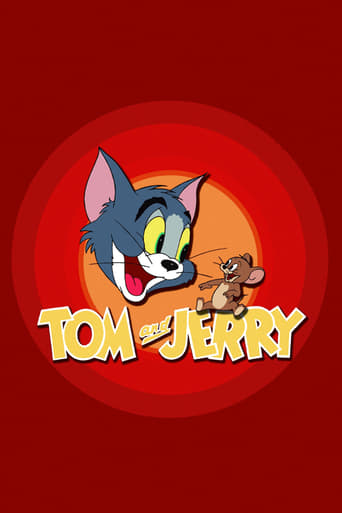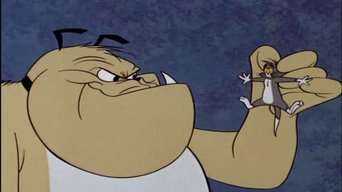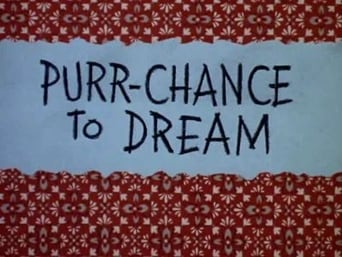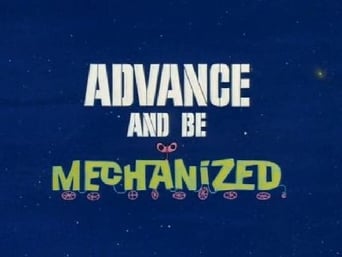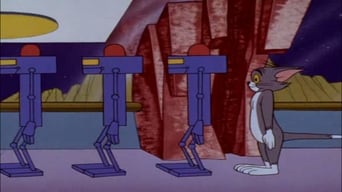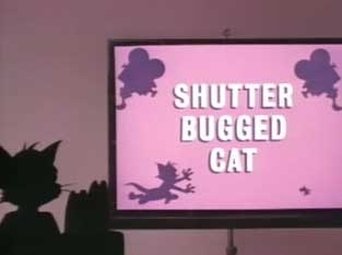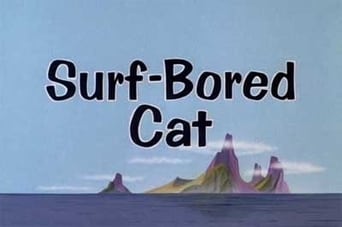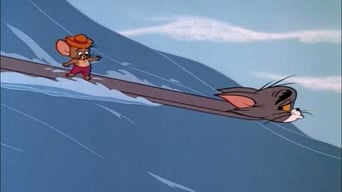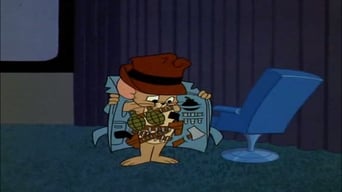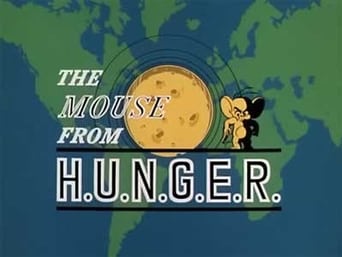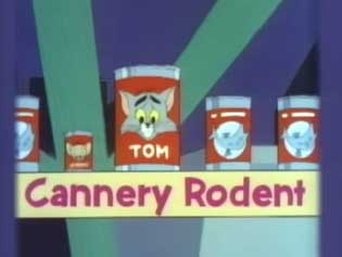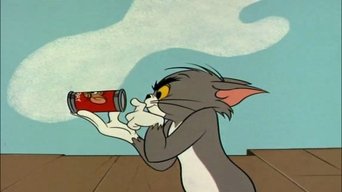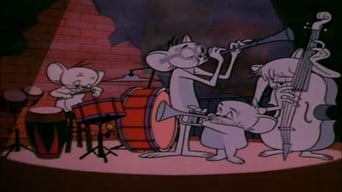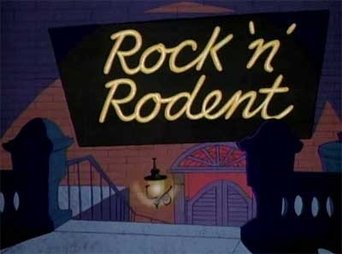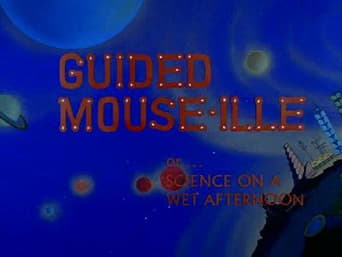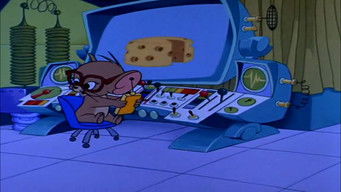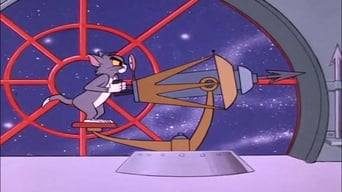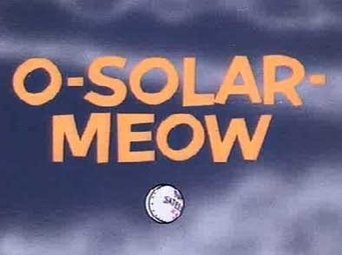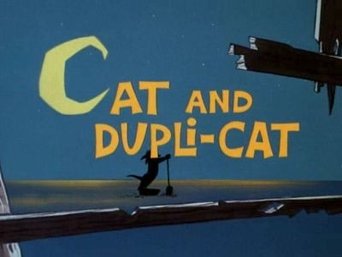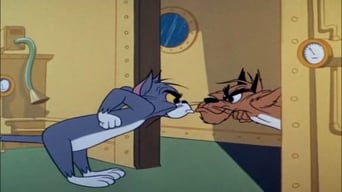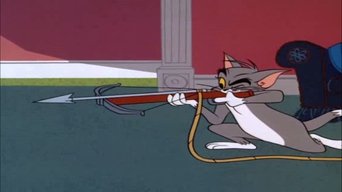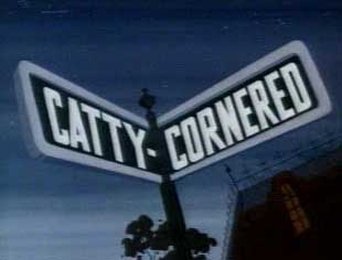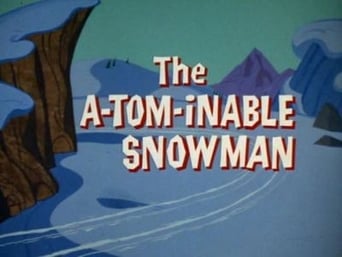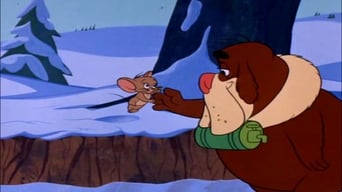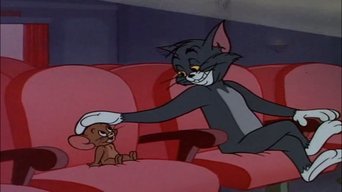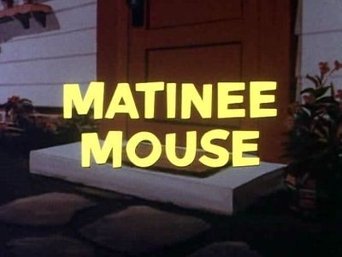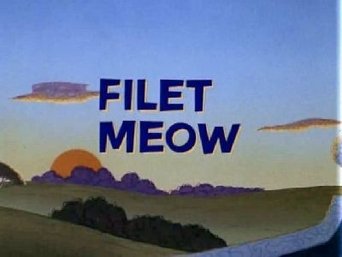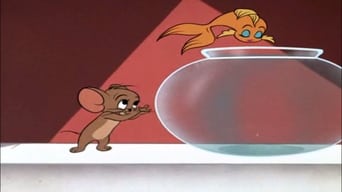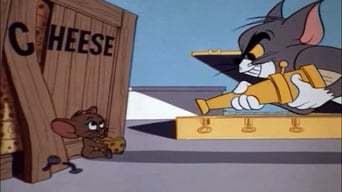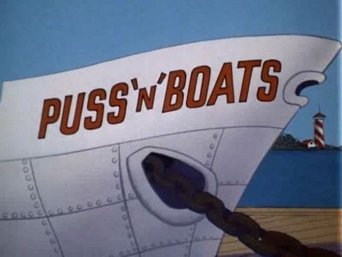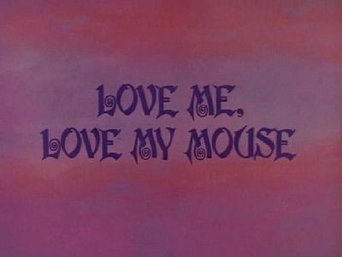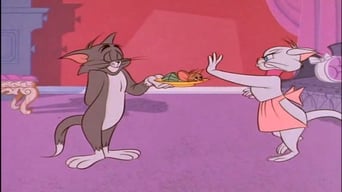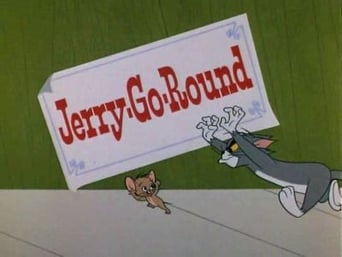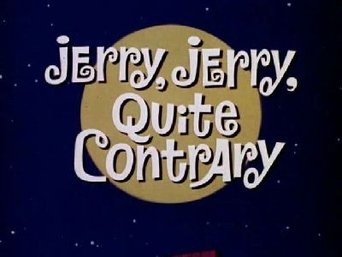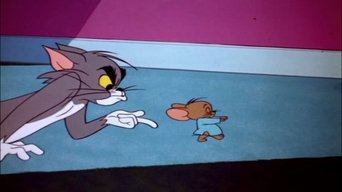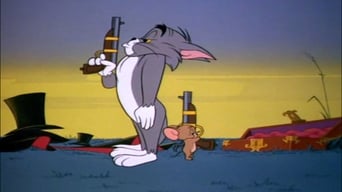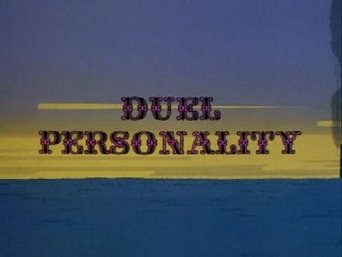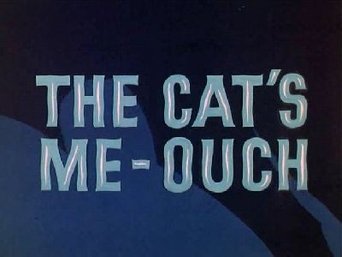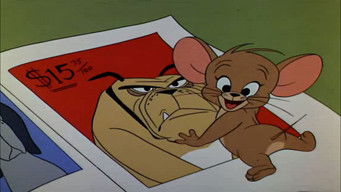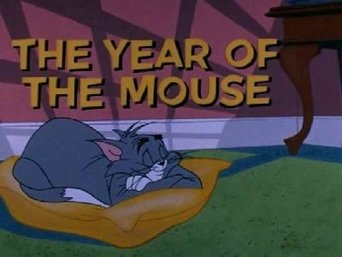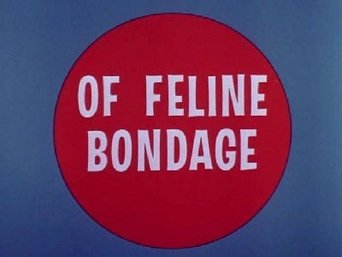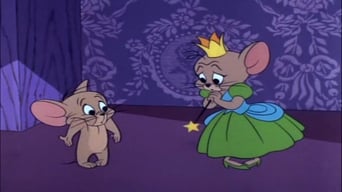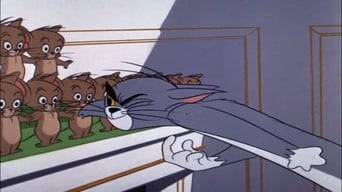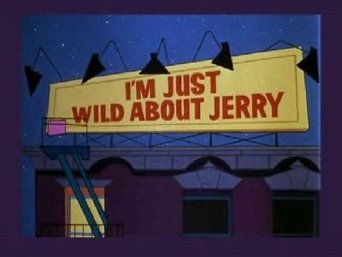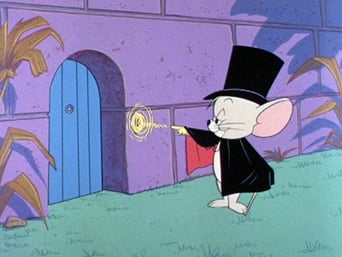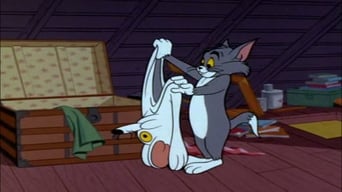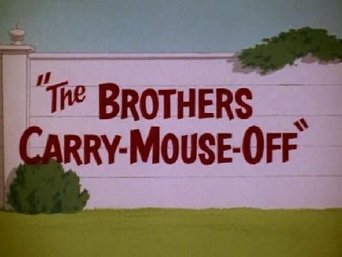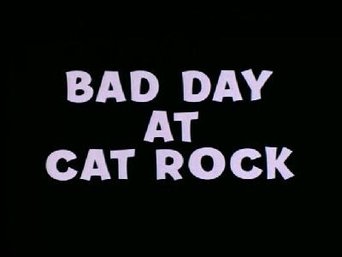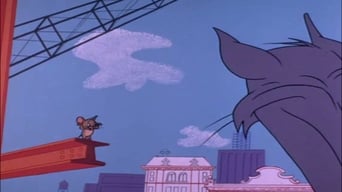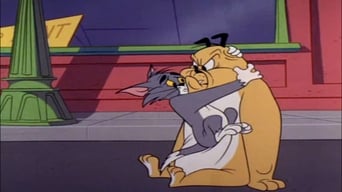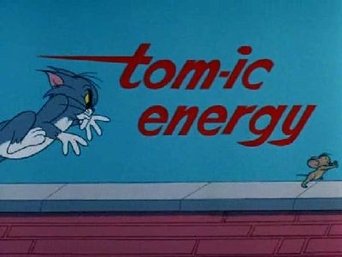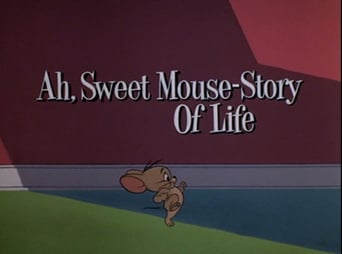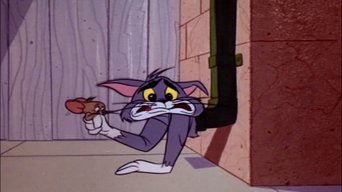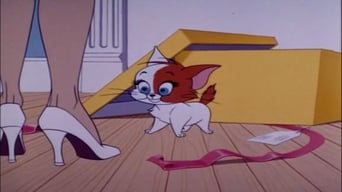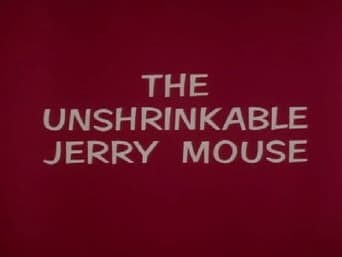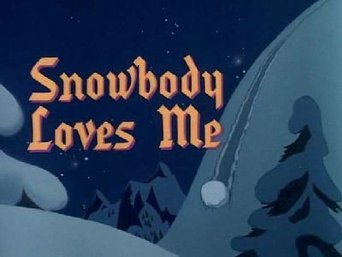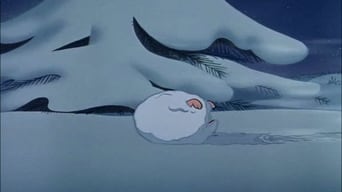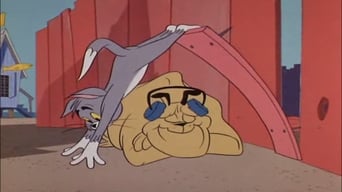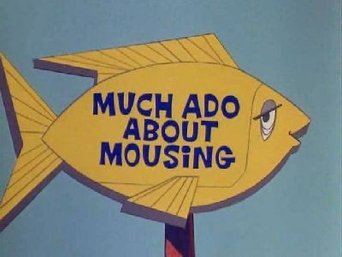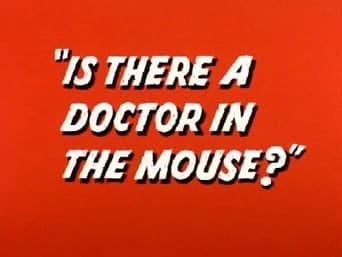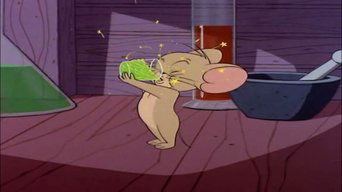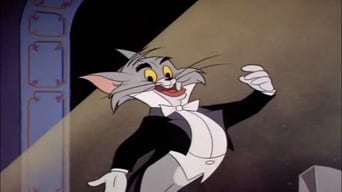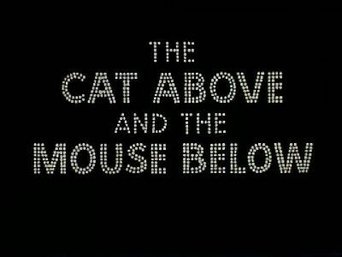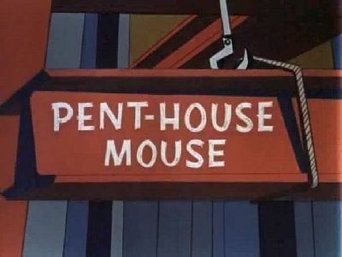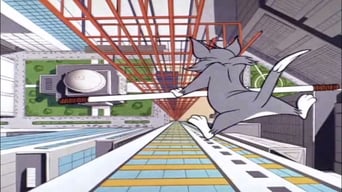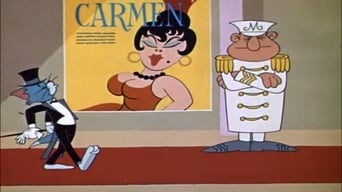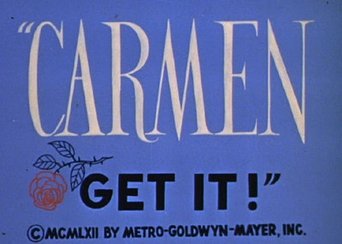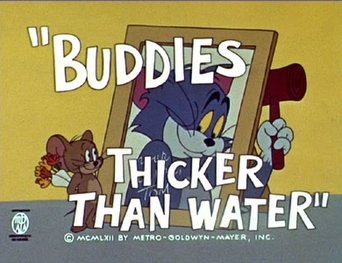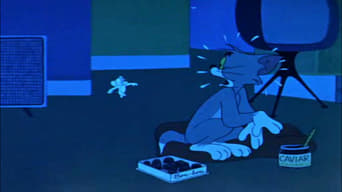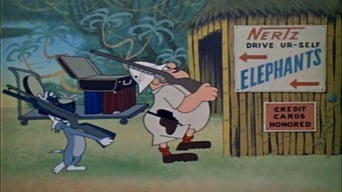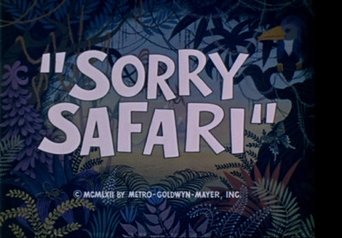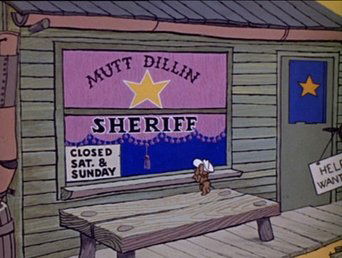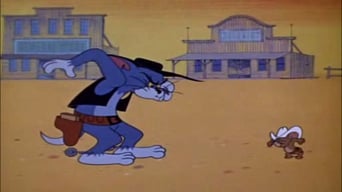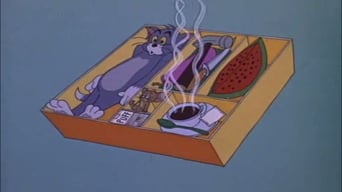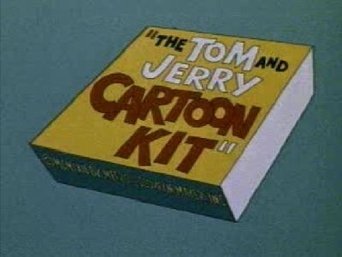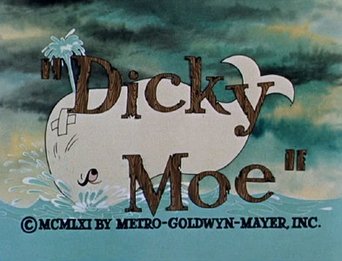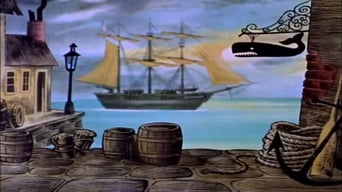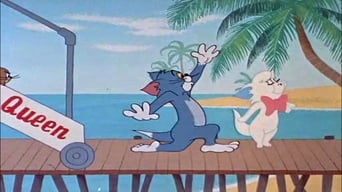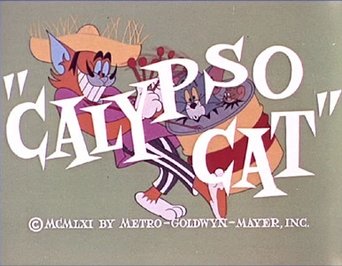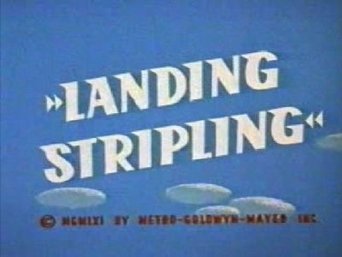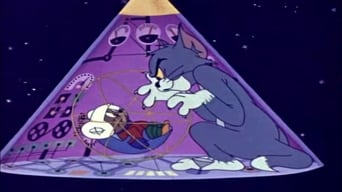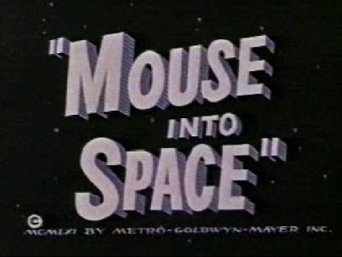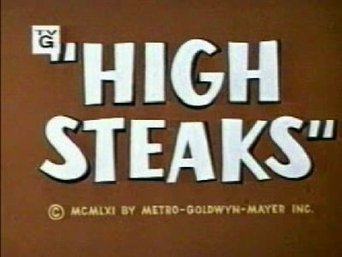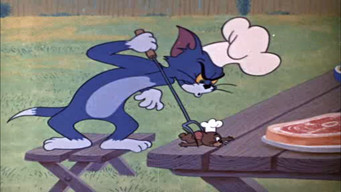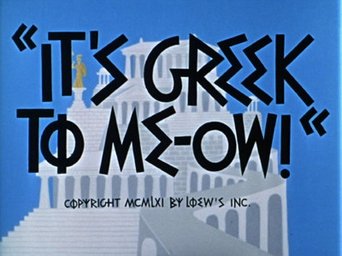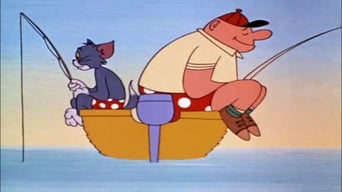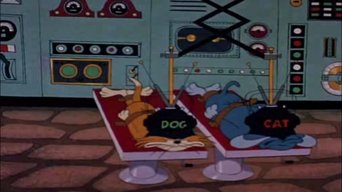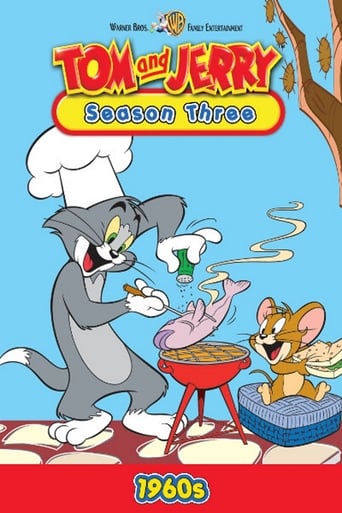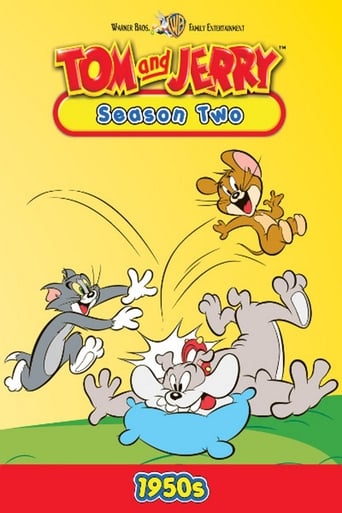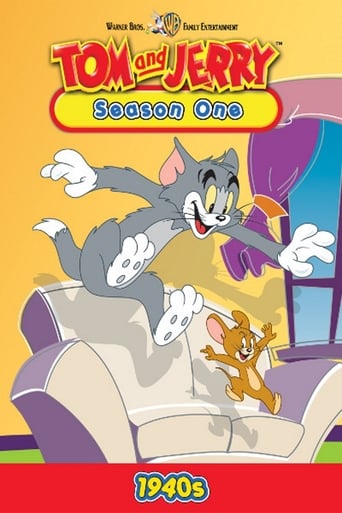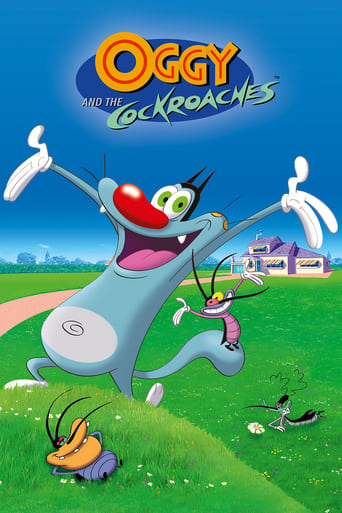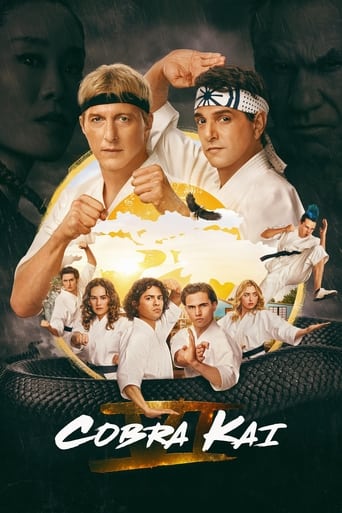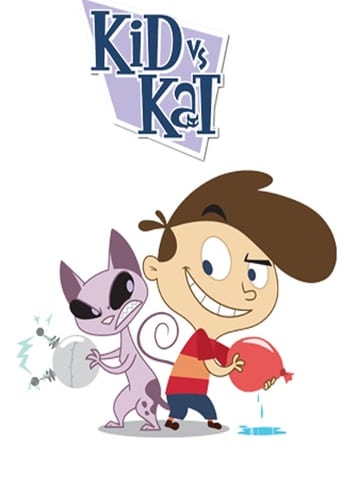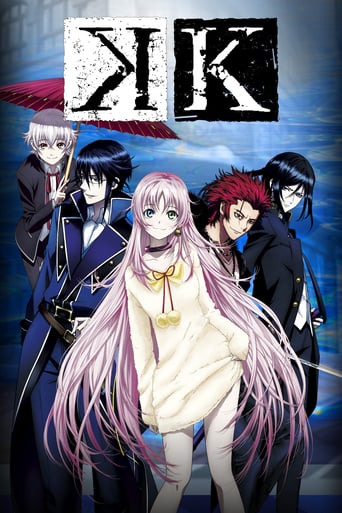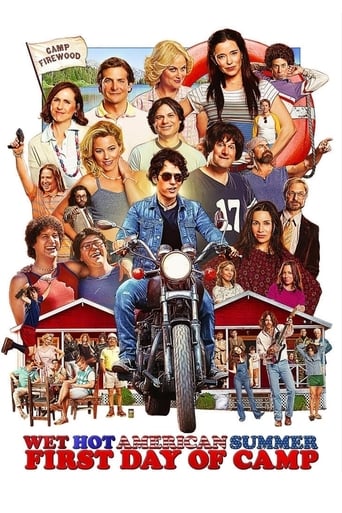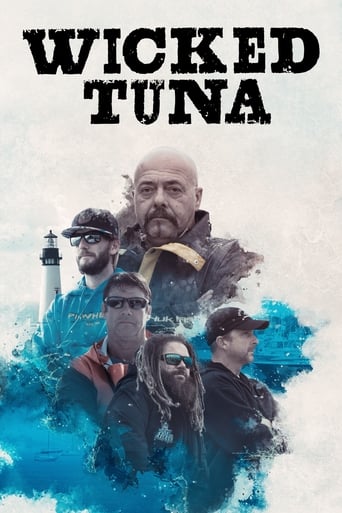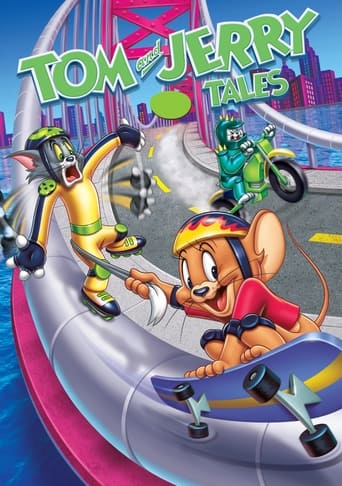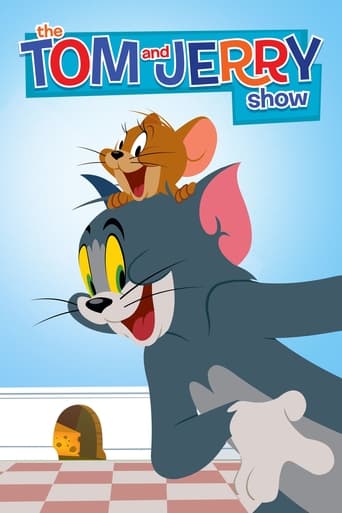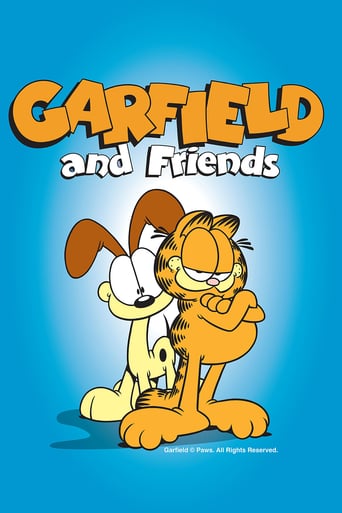Tom and Jerry Season 1960
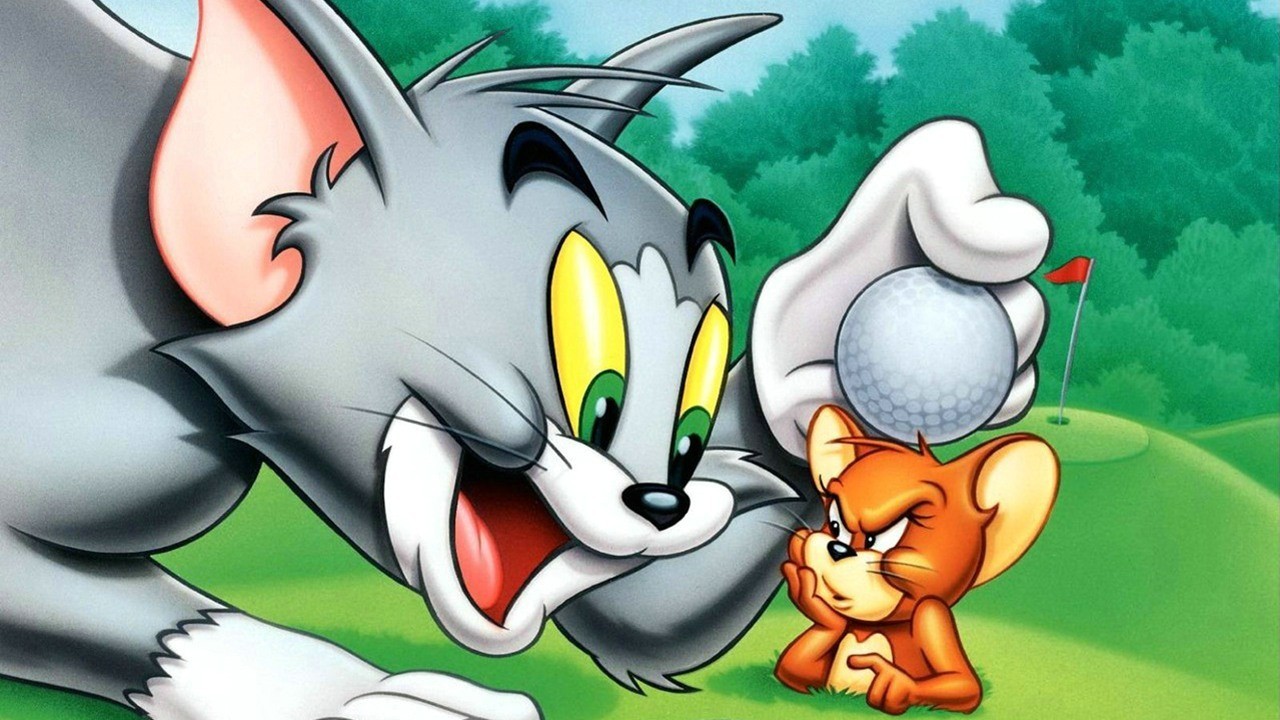
Tom and Jerry is a series of theatrical animated cartoon films created by William Hanna and Joseph Barbera for Metro-Goldwyn-Mayer, centering on a rivalry between a cat and a mouse whose chases include slapstick comedy.
Watch NowWith 30 Day Free Trial!
Tom and Jerry
1940 / NR
Tom and Jerry is a series of theatrical animated cartoon films created by William Hanna and Joseph Barbera for Metro-Goldwyn-Mayer, centering on a rivalry between a cat and a mouse whose chases include slapstick comedy.
Watch Trailer
With 30 Day Free Trial!
Tom and Jerry Season 1960 Full Episode Guide
"Purr-Chance to Dream" is a 1967 Tom and Jerry cartoon short directed by Ben Washam, a longtime animator under Chuck Jones dating back to the 1940s, and produced by Jones. It was the last theatrical Tom and Jerry short released by Metro-Goldwyn-Mayer, the last of the Chuck Jones shorts in Tom and Jerry series, the last Tom and Jerry cartoon released during the Golden Age of American animation, and the second-to-last animated short related by MGM in the Golden Age, and The Karate Guard was the next Tom and Jerry cartoon from Warner Bros. It is also the last Tom and Jerry cartoon with Carl Brandt as the music composer. The title is a play-on-words of "perchance to dream" a famous quotation from William Shakespeare's play Hamlet, though the plot of this cartoon bears no resemblance to the play. Like several Chuck Jones-produced Tom and Jerry shorts, this one arguably tends to focus more on poses and personality than on storyline and plot.
"Purr-Chance to Dream" is a 1967 Tom and Jerry cartoon short directed by Ben Washam, a longtime animator under Chuck Jones dating back to the 1940s, and produced by Jones. It was the last theatrical Tom and Jerry short released by Metro-Goldwyn-Mayer, the last of the Chuck Jones shorts in Tom and Jerry series, the last Tom and Jerry cartoon released during the Golden Age of American animation, and the second-to-last animated short related by MGM in the Golden Age, and The Karate Guard was the next Tom and Jerry cartoon from Warner Bros. It is also the last Tom and Jerry cartoon with Carl Brandt as the music composer. The title is a play-on-words of "perchance to dream" a famous quotation from William Shakespeare's play Hamlet, though the plot of this cartoon bears no resemblance to the play. Like several Chuck Jones-produced Tom and Jerry shorts, this one arguably tends to focus more on poses and personality than on storyline and plot.
Advance and Be Mechanized, released in 1967, was the penultimate Tom and Jerry cartoon. It was directed by Ben Washam and produced by Chuck Jones, and is the third and last of the outer space themed shorts from the Chuck Jones era, the first two being O-Solar Meow, and Guided Mouse-ille both released earlier in 1967. It is the last Tom and Jerry cartoon with Dean Elliott as the music composer.
Advance and Be Mechanized, released in 1967, was the penultimate Tom and Jerry cartoon. It was directed by Ben Washam and produced by Chuck Jones, and is the third and last of the outer space themed shorts from the Chuck Jones era, the first two being O-Solar Meow, and Guided Mouse-ille both released earlier in 1967. It is the last Tom and Jerry cartoon with Dean Elliott as the music composer.
Shutter Bugged Cat is a 1967 Tom and Jerry cartoon, produced in the Chuck Jones era. The story was supervised by Tom Ray. William Hanna and Joseph Barbera received a special director's credit, though the two did not contribute any work towards the cartoon.
Shutter Bugged Cat is a 1967 Tom and Jerry cartoon, produced in the Chuck Jones era. The story was supervised by Tom Ray. William Hanna and Joseph Barbera received a special director's credit, though the two did not contribute any work towards the cartoon.
Surf-Bored Cat is a 1967 Tom and Jerry directed by Abe Levitow and produced by Chuck Jones.
Surf-Bored Cat is a 1967 Tom and Jerry directed by Abe Levitow and produced by Chuck Jones.
The Mouse from H.U.N.G.E.R. is a 1967 Tom and Jerry cartoon directed by Abe Levitow and produced by Chuck Jones. The title is a pun on the 1964 spy show The Man from U.N.C.L.E., which was airing on NBC at the time.
The Mouse from H.U.N.G.E.R. is a 1967 Tom and Jerry cartoon directed by Abe Levitow and produced by Chuck Jones. The title is a pun on the 1964 spy show The Man from U.N.C.L.E., which was airing on NBC at the time.
Cannery Rodent is a 1967 Tom and Jerry cartoon produced and directed by Chuck Jones. It was the final Tom and Jerry cartoon directed by Chuck Jones, and one of the very last of the theatrical Tom and Jerry cartoons to be released by MGM. The title, Cannery Rodent is a play-on-words of the John Steinbeck novel Cannery Row.
Cannery Rodent is a 1967 Tom and Jerry cartoon produced and directed by Chuck Jones. It was the final Tom and Jerry cartoon directed by Chuck Jones, and one of the very last of the theatrical Tom and Jerry cartoons to be released by MGM. The title, Cannery Rodent is a play-on-words of the John Steinbeck novel Cannery Row.
Rock 'n' Rodent is a 1966-produced cartoon film, released in 1967, directed by Abe Levitow and produced by Chuck Jones, and featured music by Carl Brandt, with additional music by David Benoit.
Rock 'n' Rodent is a 1966-produced cartoon film, released in 1967, directed by Abe Levitow and produced by Chuck Jones, and featured music by Carl Brandt, with additional music by David Benoit.
Guided Mouse-ille is a 1967 Tom and Jerry cartoon, produced by Chuck Jones and directed by Abe Levitow. It was the second of three space-age Tom and Jerry shorts to be released in the Chuck Jones era, though taking a look at the MPAA code at the beginning of the cartoon would suggest that Guided Mouse-ille was the first of the three cartoons to be produced. According to episode number, It is the last Tom and Jerry cartoon to feature music by Eugene Poddany. However, O-Solar Meow could be the last specific cartoon according to the MPAA code to be produced. The cartoon was animated by Don Towsley, Tom Ray, Dick Thompson, Ben Washam, Ken Harris and Philip Roman, with music by Eugene Poddany and backgrounds by Thelma Witmer. The title is a pun of "Guided missile", which is a weapon. Chuck Jones had previously used a pun of guided missile for "Guided Muscle", a Warner Bros. cartoon in the Looney Tunes series featuring Wile E. Coyote and Road Runner.
Guided Mouse-ille is a 1967 Tom and Jerry cartoon, produced by Chuck Jones and directed by Abe Levitow. It was the second of three space-age Tom and Jerry shorts to be released in the Chuck Jones era, though taking a look at the MPAA code at the beginning of the cartoon would suggest that Guided Mouse-ille was the first of the three cartoons to be produced. According to episode number, It is the last Tom and Jerry cartoon to feature music by Eugene Poddany. However, O-Solar Meow could be the last specific cartoon according to the MPAA code to be produced. The cartoon was animated by Don Towsley, Tom Ray, Dick Thompson, Ben Washam, Ken Harris and Philip Roman, with music by Eugene Poddany and backgrounds by Thelma Witmer. The title is a pun of "Guided missile", which is a weapon. Chuck Jones had previously used a pun of guided missile for "Guided Muscle", a Warner Bros. cartoon in the Looney Tunes series featuring Wile E. Coyote and Road Runner.
O-Solar-Meow is a 1967 cartoon featuring Tom and Jerry. It was the first of three outer space-related shorts to be released in the Chuck Jones era. Also according to the MPAA code and not episode number, this Tom and Jerry cartoon is the last one to feature music from Eugene Poddany. The cartoon was produced by Chuck Jones and directed by Abe Levitow. The animation was supplied by Ken Harris, Don Towsley, Tom Ray, Dick Thompson and Ben Washam. The title of the cartoon is a play-on-words of the popular Italian song "'O Sole Mio."
O-Solar-Meow is a 1967 cartoon featuring Tom and Jerry. It was the first of three outer space-related shorts to be released in the Chuck Jones era. Also according to the MPAA code and not episode number, this Tom and Jerry cartoon is the last one to feature music from Eugene Poddany. The cartoon was produced by Chuck Jones and directed by Abe Levitow. The animation was supplied by Ken Harris, Don Towsley, Tom Ray, Dick Thompson and Ben Washam. The title of the cartoon is a play-on-words of the popular Italian song "'O Sole Mio."
Cat and Dupli-cat is a 1967 animated Tom and Jerry cartoon produced by Chuck Jones and MGM Animation/Visual Arts for Metro-Goldwyn-Mayer. It was directed by Chuck Jones and Maurice Noble, with animation by Ken Harris, Ben Washam, Dick Thompson, Don Towsley and Tom Ray. It was written by Chuck Jones and Michael Maltese. Terence Monck once again provides Tom's baritone singing, while Dale McKennon provides Jerry's falsetto singing.
Cat and Dupli-cat is a 1967 animated Tom and Jerry cartoon produced by Chuck Jones and MGM Animation/Visual Arts for Metro-Goldwyn-Mayer. It was directed by Chuck Jones and Maurice Noble, with animation by Ken Harris, Ben Washam, Dick Thompson, Don Towsley and Tom Ray. It was written by Chuck Jones and Michael Maltese. Terence Monck once again provides Tom's baritone singing, while Dale McKennon provides Jerry's falsetto singing.
Catty-Cornered is a 1966 Tom and Jerry cartoon directed by Abe Levitow and produced by Chuck Jones.
Catty-Cornered is a 1966 Tom and Jerry cartoon directed by Abe Levitow and produced by Chuck Jones.
The A-Tom-Inable Snowman is a 1966 Tom and Jerry cartoon directed by Abe Levitow and produced by Chuck Jones. The title is a play on The Abominable Snowman.
The A-Tom-Inable Snowman is a 1966 Tom and Jerry cartoon directed by Abe Levitow and produced by Chuck Jones. The title is a play on The Abominable Snowman.
Matinee Mouse is a 1966 Tom and Jerry cartoon, acting as a wrap-around short, featuring clips from a number of older cartoons from the Hanna-Barbara era. The story was supervised by Tom Ray, while William Hanna and Joseph Barbera received a special director's credit on the cartoon, though they did not do any actual work on it. It is the only Sib Tower 12 Tom and Jerry cartoon that features Spike.
Matinee Mouse is a 1966 Tom and Jerry cartoon, acting as a wrap-around short, featuring clips from a number of older cartoons from the Hanna-Barbara era. The story was supervised by Tom Ray, while William Hanna and Joseph Barbera received a special director's credit on the cartoon, though they did not do any actual work on it. It is the only Sib Tower 12 Tom and Jerry cartoon that features Spike.
Filet Meow is a 1966 Tom and Jerry cartoon directed by Abe Levitow and produced by Chuck Jones. The title is a reference to filet mignon.
Filet Meow is a 1966 Tom and Jerry cartoon directed by Abe Levitow and produced by Chuck Jones. The title is a reference to filet mignon.
Puss 'n' Boats is a 1966 Tom and Jerry cartoon directed by Abe Levitow and produced by Chuck Jones. It is the first Tom and Jerry cartoon with Carl Brandt as the music composer. The title Puss 'n' Boats is a play-on-words of the phrase "Puss in Boots".
Puss 'n' Boats is a 1966 Tom and Jerry cartoon directed by Abe Levitow and produced by Chuck Jones. It is the first Tom and Jerry cartoon with Carl Brandt as the music composer. The title Puss 'n' Boats is a play-on-words of the phrase "Puss in Boots".
Love Me, Love My Mouse is a 1966 Tom and Jerry cartoon directed and produced by Chuck Jones and co-directed by Ben Washam. The title Love Me, Love My Mouse is a play-on-words of the phrase "Love me, love my dog." Unlike most other cartoons this one shows Jerry in a deliberately malicious light with Jerry frequently framing Tom so that Tom is in trouble.
Love Me, Love My Mouse is a 1966 Tom and Jerry cartoon directed and produced by Chuck Jones and co-directed by Ben Washam. The title Love Me, Love My Mouse is a play-on-words of the phrase "Love me, love my dog." Unlike most other cartoons this one shows Jerry in a deliberately malicious light with Jerry frequently framing Tom so that Tom is in trouble.
Jerry-Go-Round is a 1966 Tom and Jerry cartoon produced and directed by Chuck Jones. The title Jerry-Go-Round is a play on the name of a classic amusepark carousel: a merry-go-round.
Jerry-Go-Round is a 1966 Tom and Jerry cartoon produced and directed by Chuck Jones. The title Jerry-Go-Round is a play on the name of a classic amusepark carousel: a merry-go-round.
Jerry, Jerry, Quite Contrary is a 1966 Tom and Jerry cartoon produced and directed by Chuck Jones. The title is a parody of the popular nursery rhyme "Mary, Mary, Quite Contrary".
Jerry, Jerry, Quite Contrary is a 1966 Tom and Jerry cartoon produced and directed by Chuck Jones. The title is a parody of the popular nursery rhyme "Mary, Mary, Quite Contrary".
Duel Personality is a 1966 Tom and Jerry cartoon produced and directed by Chuck Jones. It is the first Tom and Jerry cartoon produced in 1966, and the first Tom & Jerry cartoon with Dean Elliott as the music composer.
Duel Personality is a 1966 Tom and Jerry cartoon produced and directed by Chuck Jones. It is the first Tom and Jerry cartoon produced in 1966, and the first Tom & Jerry cartoon with Dean Elliott as the music composer.
The Cat's Me-Ouch! is a 1965 cartoon produced and directed by Chuck Jones. The title, The Cat's Me-Ouch! is a parody of the title of Tex Avery cartoon Cat's Meow, released on January 25, 1957, remake of Ventriloquist Cat. The short features a tiny bulldog who would go on to make another appearance in the final Tom and Jerry cartoon produced by Chuck Jones, Purr-Chance to Dream in 1967.
The Cat's Me-Ouch! is a 1965 cartoon produced and directed by Chuck Jones. The title, The Cat's Me-Ouch! is a parody of the title of Tex Avery cartoon Cat's Meow, released on January 25, 1957, remake of Ventriloquist Cat. The short features a tiny bulldog who would go on to make another appearance in the final Tom and Jerry cartoon produced by Chuck Jones, Purr-Chance to Dream in 1967.
The Year of the Mouse is a Tom and Jerry cartoon released in 1965, directed and produced by Chuck Jones, with animation by Dick Thompson, Ben Washam, Don Towsley, and Ken Harris.
The Year of the Mouse is a Tom and Jerry cartoon released in 1965, directed and produced by Chuck Jones, with animation by Dick Thompson, Ben Washam, Don Towsley, and Ken Harris.
Of Feline Bondage is a Tom and Jerry cartoon released in 1965, directed and produced by Chuck Jones, with animation by Ben Washam, Don Towsley, Ken Harris, Tom Ray and Dick Thompson. In some ways, the cartoon is reminiscent of the 1948 short, The Invisible Mouse which was directed by William Hanna and Joseph Barbera. The title of the cartoon alludes to the novel Of Human Bondage by Somerset Maugham, and the better-known 1964 film of the same name.
Of Feline Bondage is a Tom and Jerry cartoon released in 1965, directed and produced by Chuck Jones, with animation by Ben Washam, Don Towsley, Ken Harris, Tom Ray and Dick Thompson. In some ways, the cartoon is reminiscent of the 1948 short, The Invisible Mouse which was directed by William Hanna and Joseph Barbera. The title of the cartoon alludes to the novel Of Human Bondage by Somerset Maugham, and the better-known 1964 film of the same name.
I'm Just Wild About Jerry is a 1965 Tom and Jerry cartoon, directed and produced by Chuck Jones. Chuck Jones also wrote the cartoon's plot with long-time collaborator Michael Maltese. The animation was provided by Dick Thompson, Ben Washam, Ken Harris and Don Towsley. The cartoon's title is a play-on-words of the popular 1920s song "I'm Just Wild About Harry".
I'm Just Wild About Jerry is a 1965 Tom and Jerry cartoon, directed and produced by Chuck Jones. Chuck Jones also wrote the cartoon's plot with long-time collaborator Michael Maltese. The animation was provided by Dick Thompson, Ben Washam, Ken Harris and Don Towsley. The cartoon's title is a play-on-words of the popular 1920s song "I'm Just Wild About Harry".
Haunted Mouse is a 1965 Tom and Jerry cartoon directed and produced by Chuck Jones. The cartoon's title is a play on words of haunted house.
Haunted Mouse is a 1965 Tom and Jerry cartoon directed and produced by Chuck Jones. The cartoon's title is a play on words of haunted house.
The Brothers Carry-Mouse-Off is a 1965 Tom and Jerry cartoon. The cartoon was directed by Jim Pabian, with animation by Tom Ray, Dick Thompson, Ben Washam, Ken Harris and Don Towsley. Eugene Poddany scored the music, while Maurice Noble provided layouts, and Robert Gribbroek did the backgrounds. The title, The Brothers Carry-Mouse-Off is a parody of the title of Fyodor Dostoevsky's novel The Brothers Karamazov, published in 1880.
The Brothers Carry-Mouse-Off is a 1965 Tom and Jerry cartoon. The cartoon was directed by Jim Pabian, with animation by Tom Ray, Dick Thompson, Ben Washam, Ken Harris and Don Towsley. Eugene Poddany scored the music, while Maurice Noble provided layouts, and Robert Gribbroek did the backgrounds. The title, The Brothers Carry-Mouse-Off is a parody of the title of Fyodor Dostoevsky's novel The Brothers Karamazov, published in 1880.
Bad Day at Cat Rock is a 1965 Tom and Jerry cartoon produced and directed by Chuck Jones as essentially a remake of his 1963 Wile E. Coyote and Road Runner cartoon To Beep or Not to Beep. Maurice Noble was the cartoon's co-director, the animation was credited to Ben Washam, Ken Harris, Don Towsley and Dick Thompson. The music was scored by Eugene Poddany, and backgrounds by Phil DeGuard. Mel Blanc was on hand to supply the screams, yells, and other vocal effects. The cartoon's title is a pun on the MGM film Bad Day at Black Rock, though the cartoon's plot bears no resemblance.
Bad Day at Cat Rock is a 1965 Tom and Jerry cartoon produced and directed by Chuck Jones as essentially a remake of his 1963 Wile E. Coyote and Road Runner cartoon To Beep or Not to Beep. Maurice Noble was the cartoon's co-director, the animation was credited to Ben Washam, Ken Harris, Don Towsley and Dick Thompson. The music was scored by Eugene Poddany, and backgrounds by Phil DeGuard. Mel Blanc was on hand to supply the screams, yells, and other vocal effects. The cartoon's title is a pun on the MGM film Bad Day at Black Rock, though the cartoon's plot bears no resemblance.
Tom-ic Energy is a 1965 cartoon directed and produced by Chuck Jones. The cartoon is essentially plotless, consisting of various gags held together by a chase that is already underway at the start of the cartoon and still going by the end. The name is a pun on atomic energy. The music of this cartoon is primarily based on Paganini's Moto Perpetuo with other music and sound effects mixed in with the theme which crops up throughout the cartoon.
Tom-ic Energy is a 1965 cartoon directed and produced by Chuck Jones. The cartoon is essentially plotless, consisting of various gags held together by a chase that is already underway at the start of the cartoon and still going by the end. The name is a pun on atomic energy. The music of this cartoon is primarily based on Paganini's Moto Perpetuo with other music and sound effects mixed in with the theme which crops up throughout the cartoon.
Ah, Sweet Mouse-Story of Life is a 1965 cartoon directed and produced by Chuck Jones. The cartoon's title is a play-on-words of the song "Ah, Sweet Mystery of Life" from Naughty Marietta, though the storyline bears no resemblance.
Ah, Sweet Mouse-Story of Life is a 1965 cartoon directed and produced by Chuck Jones. The cartoon's title is a play-on-words of the song "Ah, Sweet Mystery of Life" from Naughty Marietta, though the storyline bears no resemblance.
The Unshrinkable Jerry Mouse is a 1964 cartoon directed and produced by Chuck Jones. The title is a play on words on The Unsinkable Molly Brown, a popular Broadway musical that was made into a feature film, also in 1964. The cartoon is essentially a Claude Cat and Marc Antony and Pussyfoot cartoon reworked for Tom and Jerry; most of the production staff on this cartoon had also developed those characters at Warners. Many of the gags were inspired by Warner Bros. cartoons of a similar theme to this short, such as Feline Frame-Up, Feed the Kitty, and Two's a Crowd, which were mostly written my Michael Maltese and directed by Chuck Jones.
The Unshrinkable Jerry Mouse is a 1964 cartoon directed and produced by Chuck Jones. The title is a play on words on The Unsinkable Molly Brown, a popular Broadway musical that was made into a feature film, also in 1964. The cartoon is essentially a Claude Cat and Marc Antony and Pussyfoot cartoon reworked for Tom and Jerry; most of the production staff on this cartoon had also developed those characters at Warners. Many of the gags were inspired by Warner Bros. cartoons of a similar theme to this short, such as Feline Frame-Up, Feed the Kitty, and Two's a Crowd, which were mostly written my Michael Maltese and directed by Chuck Jones.
Snowbody Loves Me is a 1964 Tom and Jerry cartoon directed by Chuck Jones. The cartoon contains much music arranged from familiar Chopin pieces; notably, the Revolutionary Étude; the Grande Valse Brillante in E-flat major; and the Fantaisie-Impromptu. The name is a reference to the phrase "Nobody loves me."
Snowbody Loves Me is a 1964 Tom and Jerry cartoon directed by Chuck Jones. The cartoon contains much music arranged from familiar Chopin pieces; notably, the Revolutionary Étude; the Grande Valse Brillante in E-flat major; and the Fantaisie-Impromptu. The name is a reference to the phrase "Nobody loves me."
Much Ado About Mousing is a 1964 cartoon directed and produced by Chuck Jones. It was the second Tom and Jerry cartoon to be produced under Chuck Jones' helm, but the fourth to be released. The name is a pun of a comedy by William Shakespeare: "Much Ado About Nothing".
Much Ado About Mousing is a 1964 cartoon directed and produced by Chuck Jones. It was the second Tom and Jerry cartoon to be produced under Chuck Jones' helm, but the fourth to be released. The name is a pun of a comedy by William Shakespeare: "Much Ado About Nothing".
Is There a Doctor in the Mouse? is a 1964 cartoon directed and produced by Chuck Jones. The title is a pun on the famous phrase "Is There a Doctor in the House?"
Is There a Doctor in the Mouse? is a 1964 cartoon directed and produced by Chuck Jones. The title is a pun on the famous phrase "Is There a Doctor in the House?"
The Cat Above and The Mouse Below is second of thirty-four Tom and Jerry shorts produced by Chuck Jones, released in 1964.
The Cat Above and The Mouse Below is second of thirty-four Tom and Jerry shorts produced by Chuck Jones, released in 1964.
Pent-House Mouse is the first of thirty-four Tom and Jerry shorts directed by Chuck Jones, released in 1963. Pent-House Mouse returned production of the series to Hollywood after a five-year absence.
Pent-House Mouse is the first of thirty-four Tom and Jerry shorts directed by Chuck Jones, released in 1963. Pent-House Mouse returned production of the series to Hollywood after a five-year absence.
Carmen Get It! was the 13th and final Tom and Jerry cartoon produced by William L. Snyder and directed by Gene Deitch in the present-day Czech Republic, released on December 1, 1962 by Metro-Goldwyn-Mayer. This short ended Deitch's contract with MGM, and Chuck Jones took over production of the Tom and Jerry cartoons shortly afterwards, and moving production back to Southern California, with the Summer of 1963 short Pent-House Mouse. The name is a pun on the phrase "Come and get it!"
Carmen Get It! was the 13th and final Tom and Jerry cartoon produced by William L. Snyder and directed by Gene Deitch in the present-day Czech Republic, released on December 1, 1962 by Metro-Goldwyn-Mayer. This short ended Deitch's contract with MGM, and Chuck Jones took over production of the Tom and Jerry cartoons shortly afterwards, and moving production back to Southern California, with the Summer of 1963 short Pent-House Mouse. The name is a pun on the phrase "Come and get it!"
Buddies Thicker Than Water is a 1962 short film, originally released as part of the Tom and Jerry series on November 1. It was the 12th and penultimate cartoon in the series to be directed by Prague-based animator Gene Deitch in then-Communist Czechoslovakia and produced by William L. Snyder. The name is a pun on the phrase "Blood is thicker than water". Although the Gene Deitch shorts were poorly received, this particular short is considered one of the more well-received, as it was chosen for a volume of the Bumper Collection VHS series. The episode focuses heavily on alcoholic refences this caused the viewers to find it inappropriate and it was banned from broadcasting in the UK and Australia.
Buddies Thicker Than Water is a 1962 short film, originally released as part of the Tom and Jerry series on November 1. It was the 12th and penultimate cartoon in the series to be directed by Prague-based animator Gene Deitch in then-Communist Czechoslovakia and produced by William L. Snyder. The name is a pun on the phrase "Blood is thicker than water". Although the Gene Deitch shorts were poorly received, this particular short is considered one of the more well-received, as it was chosen for a volume of the Bumper Collection VHS series. The episode focuses heavily on alcoholic refences this caused the viewers to find it inappropriate and it was banned from broadcasting in the UK and Australia.
Sorry Safari, released in October 1962, is the 11th in a series of thirteen Tom and Jerry cartoons directed by Gene Deitch.
Sorry Safari, released in October 1962, is the 11th in a series of thirteen Tom and Jerry cartoons directed by Gene Deitch.
Tall in the Trap is a 1962 Czechoslovakian-produced American animated short film. It was originally released as part of the Tom and Jerry series on September 1, 1962. The film was directed by Gene Deitch, was produced by William L. Snyder, and written by Deitch, Bill Danch, Tedd Pierce. The musical score for Tall in the Trap was composed by Štěpán Koníček and Jiří Jirmal. This was the tenth in a series of thirteen Rembrandt Films cartoons, and is based loosely on the popular CBS-TV western series that was airing at the time, Have Gun – Will Travel.
Tall in the Trap is a 1962 Czechoslovakian-produced American animated short film. It was originally released as part of the Tom and Jerry series on September 1, 1962. The film was directed by Gene Deitch, was produced by William L. Snyder, and written by Deitch, Bill Danch, Tedd Pierce. The musical score for Tall in the Trap was composed by Štěpán Koníček and Jiří Jirmal. This was the tenth in a series of thirteen Rembrandt Films cartoons, and is based loosely on the popular CBS-TV western series that was airing at the time, Have Gun – Will Travel.
The Tom and Jerry Cartoon Kit is a Tom and Jerry cartoon produced and released in 1962. It was directed by Gene Deitch and produced by William L. Snyder. Despite mixed reception, it is mainly known as the most critically acclaimed of the Gene Deitch Tom and Jerry shorts among members of the Tom and Jerry fanbase. The ninth of thirteen Rembrandt Films cartoons indirectly makes fun of the violence in the original William Hanna and Joseph Barbera shorts.
The Tom and Jerry Cartoon Kit is a Tom and Jerry cartoon produced and released in 1962. It was directed by Gene Deitch and produced by William L. Snyder. Despite mixed reception, it is mainly known as the most critically acclaimed of the Gene Deitch Tom and Jerry shorts among members of the Tom and Jerry fanbase. The ninth of thirteen Rembrandt Films cartoons indirectly makes fun of the violence in the original William Hanna and Joseph Barbera shorts.
Dicky Moe is a Tom and Jerry cartoon produced in 1961 and released in 1962. It was directed by Gene Deitch and produced by William L. Snyder. The plotline and title of the short is a parody of the book Moby-Dick by Herman Melville. It is the eighth of thirteen Tom and Jerry cartoons made in Czechoslovakia.
Dicky Moe is a Tom and Jerry cartoon produced in 1961 and released in 1962. It was directed by Gene Deitch and produced by William L. Snyder. The plotline and title of the short is a parody of the book Moby-Dick by Herman Melville. It is the eighth of thirteen Tom and Jerry cartoons made in Czechoslovakia.
Calypso Cat is a Tom and Jerry cartoon produced in 1961 and released in 1962. It was directed by Gene Deitch and produced by William L. Snyder. The seventh of thirteen Tom and Jerry cartoons made in the present-day Czech Republic.
Calypso Cat is a Tom and Jerry cartoon produced in 1961 and released in 1962. It was directed by Gene Deitch and produced by William L. Snyder. The seventh of thirteen Tom and Jerry cartoons made in the present-day Czech Republic.
Landing Stripling is a 1962 Tom and Jerry cartoon directed by Gene Deitch and produced by William L. Snyder. It is the sixth of the thirteen cartoons made in the present-day Czech Republic.
Landing Stripling is a 1962 Tom and Jerry cartoon directed by Gene Deitch and produced by William L. Snyder. It is the sixth of the thirteen cartoons made in the present-day Czech Republic.
Mouse into Space is a 1962 Tom and Jerry cartoon directed by Gene Deitch and produced by William L. Snyder. It is the fifth of the thirteen cartoons made in Prague, Czechoslovakia.
Mouse into Space is a 1962 Tom and Jerry cartoon directed by Gene Deitch and produced by William L. Snyder. It is the fifth of the thirteen cartoons made in Prague, Czechoslovakia.
High Steaks is a 1961 cartoon directed by Gene Deitch and produced by William L. Snyder, released in early 1962. The cartoon was the fourth of thirteen cartoons made in Czechoslovakia after original creators William Hanna and Joseph Barbera had left MGM to work for television. The title is a pun on the phrase "High stakes".
High Steaks is a 1961 cartoon directed by Gene Deitch and produced by William L. Snyder, released in early 1962. The cartoon was the fourth of thirteen cartoons made in Czechoslovakia after original creators William Hanna and Joseph Barbera had left MGM to work for television. The title is a pun on the phrase "High stakes".
It's Greek to Me-ow! is a 1961 Tom and Jerry cartoon directed by Gene Deitch and produced by William L. Snyder. It is the third of the thirteen cartoons from Rembrandt Films. This is one of the few Tom and Jerry shorts to credit who made the sound effects. The episode name is a pun on the phrase "It's Greek to me"
It's Greek to Me-ow! is a 1961 Tom and Jerry cartoon directed by Gene Deitch and produced by William L. Snyder. It is the third of the thirteen cartoons from Rembrandt Films. This is one of the few Tom and Jerry shorts to credit who made the sound effects. The episode name is a pun on the phrase "It's Greek to me"
Down and Outing is a 1961 cartoon directed by Gene Deitch and produced by William L. Snyder. It is the second of the thirteen cartoons made in the Czech Republic, which was known at the time as Czechoslovakia. The name is a pun on the term "Down and out".
Switchin' Kitten is the first of thirteen Tom and Jerry cartoons that were directed by Gene Deitch and his team of animators in Czechoslovakia. It was created in 1960, and released on September 7, 1961.
Free Trial Channels
Seasons


